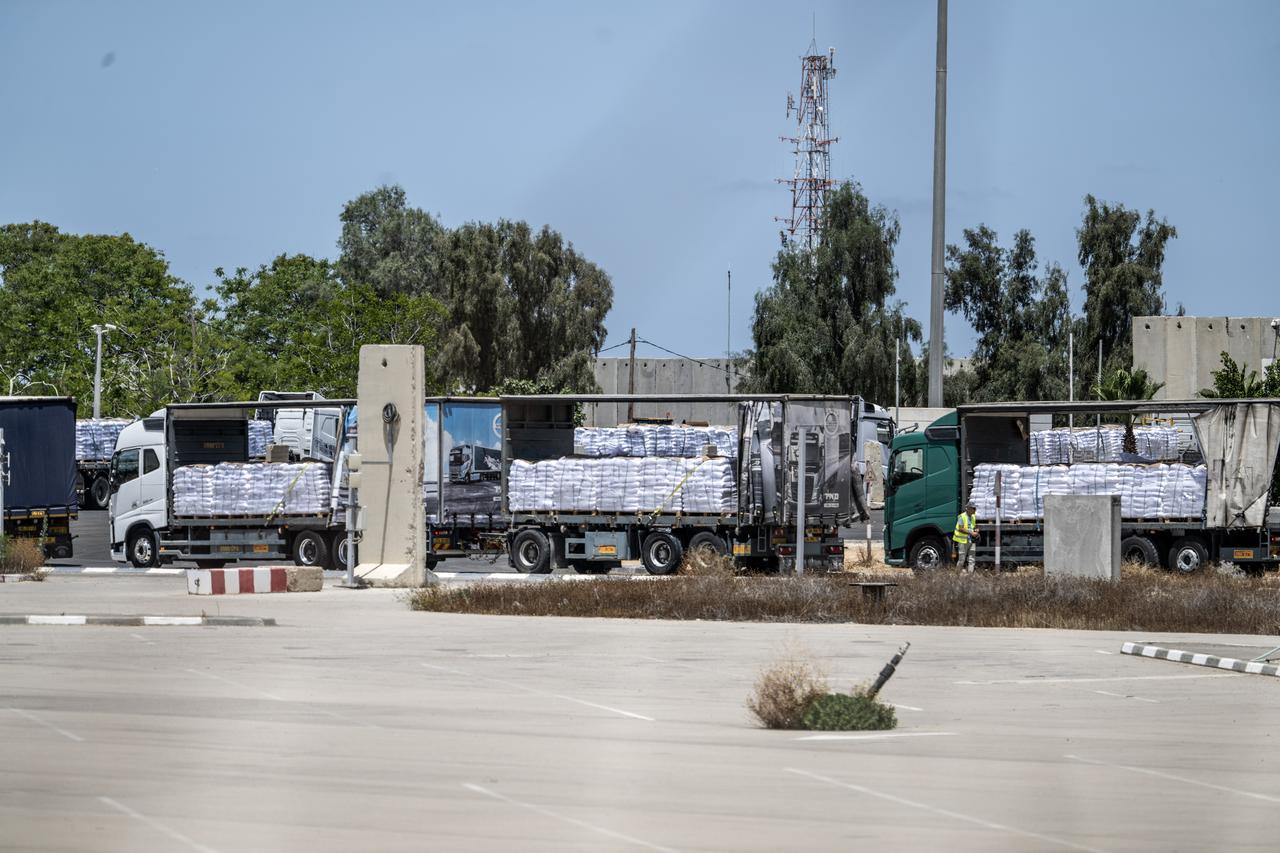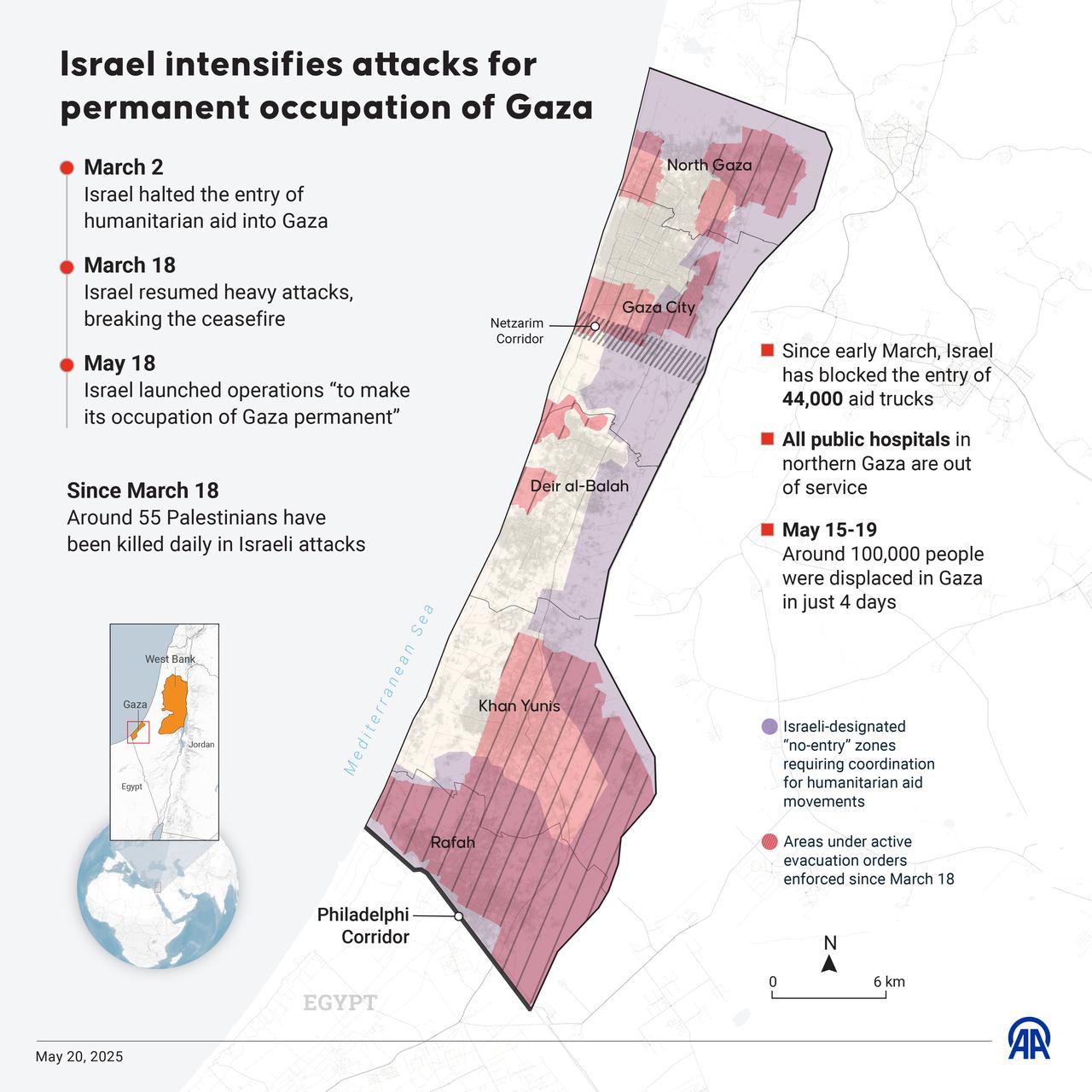
Despite Israel allowing a limited number of aid trucks into Gaza after more than two months of near-total blockade, no humanitarian supplies have been distributed inside the besieged enclave, a U.N. spokesperson said Tuesday.
"Today one of our teams waited several hours for the Israeli green light to access the Kareem Shalom area and collect the nutrition supplies. Unfortunately, they were not able to bring those supplies into our warehouse," U.N. spokesperson Stephane Dujarric told reporters.
"So just to make it clear, while more supplies have come in to the Gaza Strip, we have not been able to secure the arrival of those supplies into our warehouses and delivery points," he said.
His comments followed an announcement earlier Tuesday by the U.N. Office for the Coordination of Humanitarian Affairs (OCHA) that Israel had approved the entry of about 100 aid trucks into Gaza—a significant increase from just nine the day before. However, humanitarian groups warn the figure remains far below what is needed for Gaza’s population, which faces near-famine conditions.
"In the end, about four trucks, not five, were allowed in yesterday. Today, we have a few dozen," Dujarric said. "But the point is, the logistical, the security complications, just the overall environment make this extremely, extremely difficult."

According to Dujarric, the aid remains stalled at the loading dock due to a complex and restrictive delivery process. "Things have to cross the fence from Israel into Gaza, into an area where the trucks have to be unloaded and reloaded, and then we have to get permission from the Israeli security forces to bring our people in to pick up those trucks."
Although a U.N. team managed to access the area on Tuesday, the delay meant they were unable to transport any of the supplies. Dujarric emphasized that the main challenge now is securing routes from the loading area to U.N. warehouses and distribution points within Gaza.
"We have to get clearance, obviously, from Israeli army, and we also have to make sure the general area is safe for us," he said. "There's also been a lot of congestion on the road, so it's been … very challenging."
Distributing aid in Gaza remains a "very long, complex, complicated and dangerous process," he added.